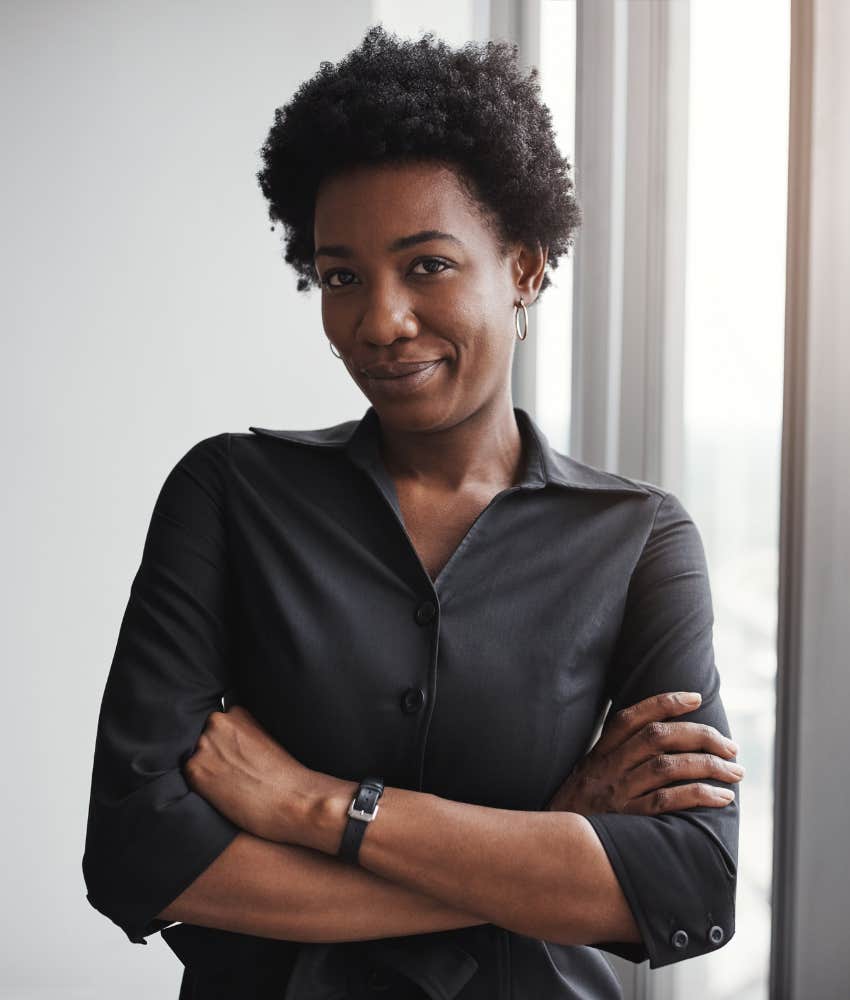People Who Maintain Incredibly Sharp Brain Function In Their 70s And 80s Usually Have These 3 Traits
Three traits play a surprisingly big role in staying sharp well into old age.
 George Dagerotip | Unsplash
George Dagerotip | Unsplash Australian pro surfer Layne Beachley, seven-time winner of the world surfing championship, is on a mission to inspire and empower over one million individuals to become more centered, connected, and confident as they age, including me and you.
In an Instagram post, Beachley shared a great tip for how you can become sharper and more self-empowered far into your golden years.
People who maintain incredibly sharp brain function in their 70s and 80s usually have these traits:
1. Awareness
 PeopleImages.com - Yuri A via Shutterstock
PeopleImages.com - Yuri A via Shutterstock
Empowering oneself is a gradual process, and as Beachley puts it, the first step towards self-empowerment begins with self-awareness. But having awareness doesn’t just mean being aware of your surroundings, but rather having an “awareness of how you’re feeling and honor that,” says Beachley.
According to mental health specialist and life coach Taylor Wilkins, “Self-reflection exercises help you find a much deeper level of confidence and sense of purpose in what you’re doing.”
However, before you can begin to set the stage for self-reflection, self-awareness is required. As Wilkins says, "Self-awareness allows you to both explore yourself and question the reasoning behind your actions." This allows us to gain a sense of clarity and purpose, empowering us to overcome self-doubt throughout the process.
If you have self-sabotaging tendencies during this process, Wilkins suggests incorporating core motivators to keep your negative self-talk at bay, like:
- Motivator reminders. such as “I can do this.”
- Engaging in creative exercises to maintain a positive mindset. For example, coming up with a fun and creative title for your purpose.
Along with this, Wilkins conducted an activity with a client, where the client imagined a gremlin on a leash. The gremlin was her creativity and anxiety, which she tried desperately to control.
But as Wilkins pointed out, “She’s trying to control the gremlin, yanking on the leash. It causes all sorts of tension and stress.” So, what does he ask her to do instead?
He tells her to imagine the gremlin as her favorite dog and throw away the leash. When asked what she visualized, she responded that the dog looked a little bit curious, but it eventually came back.
He ends with, “So it looks like you can trust to relinquish a little bit of control of these things.” Wilkins concludes that both her anxiety and creativity will always come back, and Wilkins encourages her to see her anxiety and creativity as a supportive dog, rather than a scary gremlin.
2. Acceptance
When we become aware of how we feel, then what? As Beachley puts it, “We can then take on the second ‘A’ which is acceptance."
“If we don’t accept how we feel, we tend to suppress it. We go into states of denial or deflection or distraction, and that prolongs our pain and suffering," says Beachley.
To get here, we must first accept reality, meaning from here on out, you can only make choices in the present. And I get it, as much as we want to go back in time and fix our mistakes, the reality is we can’t. So, the first step is focusing on the present and accepting the fact that not everything is possible, says psychologist Roger K. Allen.
However, just because things aren’t possible doesn’t mean reality is a bad thing. As Allen writes, “Reality is neutral.” Which means you can give reality its meaning.
So, accept and embrace reality, and use it as a tool for spiritual and emotional growth, says Allen. By letting go of the what-ifs, you can learn to move forward in a more positive direction. But remember, this all starts with acceptance.
3. Agility
 Inside Creative House via Shutterstock
Inside Creative House via Shutterstock
Lastly, being flexible in communication is crucial. As Beachley puts it, “Be agile in your response because no two feelings are the same and no two days are the same.” Further, being flexible when communicating is key to self-empowerment.
How many times have you said something in the heat of the moment that you later regretted? If I had to guess, probably loads of times! You see, being flexible in your communication not only saves your relationships but also makes you feel self-empowered in the process.
A recent meta-analysis suggested that “psychological flexibility and inflexibility may play key roles both in couples and families to shape how individuals interact with the people closest to them."
Flexibility occurs when an individual is mindful and present during conflict. However, a sustained negative mindset reduces your ability to make decisions and solve problems. In turn, your relationships are impacted. Even more, a lack of mental agility can lead to depression or anxiety, which definitely won’t help with self-empowerment.
OK, but why should self-empowerment even matter? What’s the benefit of self-empowerment, and is it even worth it?
As wellness expert Tchiki Davis, PhD, puts it, “Feeling able to move forward with your goals and live by your values is essential to your well-being."
When you aren’t living in your truth, your confidence and self-worth can shatter into a million pieces. So, by changing your surroundings to increase your authenticity, you can positively impact your happiness and self-esteem in the long run!
Marielisa Reyes is a writer with a bachelor's degree in psychology who covers self-help, relationships, career, and family topics.

